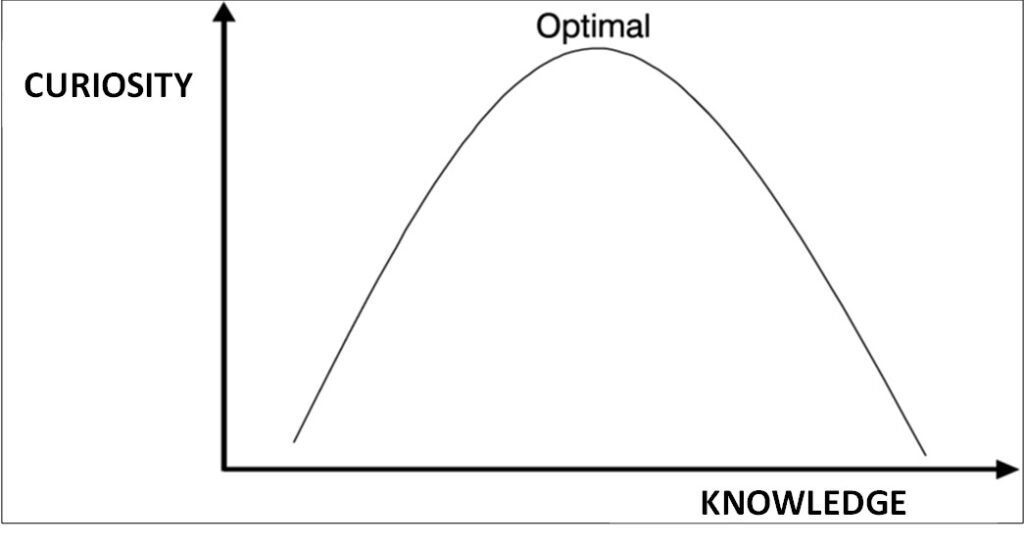To succeed in a post-Covid world: ZOOM OUT
Home // To succeed in a post-Covid world: ZOOM OUT
- Greg Orme
Why curiosity needs to replace Corona-fear
In danger human beings automatically focus intently on the threat. This ability to ‘zoom in’ is why you’re here. It kept your ancestors alive while others weren’t so lucky. In hunter-gatherer tribes, threats were short- lived but lethal. However, what kept our ancestors from a sticky end doesn’t always serve us well in modern life. Our brains are poorly-designed for slow-burning challenges. Take Covid-19. Unlike the sudden appearance of a sabre tooth tiger the pandemic has dominated life for months, not moments.
People are telling me they feel utterly drained. This makes sense as research shows being anxious for long periods means we overdose on ‘fight-or-flight’ hormones. This is exhausting as well as being mentally and physically unhealthy. What’s more it suppresses the very qualities we need to respond successfully to a disrupted environment: learning, creativity and balanced decision-making.
After five months of Corona-fear, it’s high time we consciously balance our genetic tendency to zoom in with time spent zooming out. Research shows the human brain needs to explore to stay happy. In addition, in an economy with less job security it’s a smart move to take control of your own learning and development. This will allow you to build the new skills required for 2021 and beyond.
Enlightened businesses always invest in a downturn to prepare for what comes next. People should follow suit. In a study carried out after the 2008 financial crisis, those organisations which invested average or high amounts in their leadership development grew profits by approximately 200%. Those which invested low amounts grew profits by just 50%. Not surprising that people are following the same logic with a significant increase in online learning by adults through the Covid period.
The U-Shaped Curiosity Curve
As well as gaining knowledge linked to your career, it’s vital to allow your curiosity to roam widely across new domains. The CGI animation business Pixar uses this logic. It offers classes on everything from self-defence to drawing. Employees are encouraged to dedicate up to four hours of every week to their education. Randy Nelson, the founding Dean of Pixar University, said: “Why teach drawing to accountants? Because drawing classes doesn’t just teach people to draw. It teaches them to be observant. There’s no company on earth that wouldn’t benefit from having people become more observant.”
Curious roaming works for people too. Steve Jobs was a college dropout in 1973, but he still audited the occasional class. One day he snuck in the back of a calligraphy course. Useless you might think. However, it’s no coincidence the Apple Mac was the very first computer to offer a huge variety of different styles of lettering, a practice that’s now standard across all word processors. Later Jobs explained : “If I had never dropped in on this calligraphy class, personal computers might not have the wonderful typography that they do. Of course it was impossible to connect the dots looking forward when I was in college. But it was very, very clear looking backwards ten years later.”

Pixar and Jobs’ belief in curiosity are supported by neuroscience. Researchers at California Institute of Technology showed curiosity follows an inverted U-shape curve. This U-shape is responsible for the weird phenomenon when you learn something new: a new brand of car, dog breed or specialist sport. It then seems to crop up a lot more. This happens because your new knowledge has primed your brain. It’s lodged in what’s called the Reticular Activating System.
Curiosity is a self-fulfilling prophecy. Open any door to a new knowledge domain and it leads to a lifetime of discovery. Also, by learning the foothills of any new subject, the peaks are more accessible and inviting. In The Art of Scientific Investigation Cambridge University professor W. I. B. Beveridge advised young scientists to expand their reading outside of their own field because: “Originality often consists in linking up ideas whose connection was not previously suspected.”
His point: when you surf the knowledge waves of life nothing you discover is useless. A little investment in ‘random’ knowledge – from Victorian literature to Japanese design, computing coding to jet propulsion, DNA strands to ballet – may pay dividends when you are called upon to create new ideas. Curiosity is a vital skill to navigate our fast-moving and disrupted world. This is why its damaging, short-sighted and pointless to demand an immediate return on your investment in learning. The key is to value knowledge for its own sake. You never know when it’ll come in useful.
This blog is adapted from my latest book The Human Edge: How curiosity and creativity are your superpowers in the digital economy (Pearson) which won the Business Book of The Year 2020.
All right reserved Copyright © 2020 Greg Orme
Related posts

Does Your Busy Culture Undermine Mental Health?
4 min read – As we move into the post-pandemic era, the ability to feel or imagine another person’s emotional experience will become even more important.

For Happiness In Tough Times, Be More Grateful
4 min read – As we move into the post-pandemic era, the ability to feel or imagine another person’s emotional experience will become even more important.

Caring Got Cool: Diverse, Remote Teams Make Empathy A Vital Skill For Managers
4 min read – As we move into the post-pandemic era, the ability to feel or imagine another person’s emotional experience will become even more important.